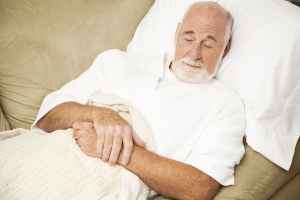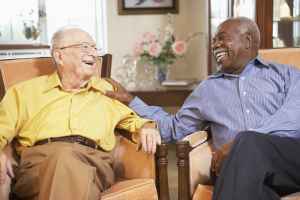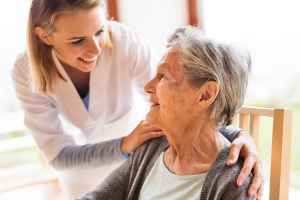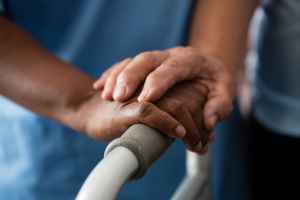Nursing Homes in Colorado
Seniors looking for fresh air and spectacular views of the mountains should look no further than Colorado. The Rocky Mountains give the state the highest average elevation in the country, but there are still more sunny days than the national average and residents get to experience all four seasons throughout the year. Almost 15% of Colorado’s 5.7 million residents are aged 65 and over, and they enjoy world-class health care, generous income tax deductions and plenty of community-based programs to help them as they age. In fact, Colorado as a state has joined the AARP Network of Age-Friendly States and Communities, along with 18 communities including Denver and Colorado Springs. This shows the state’s commitment to building a comfortable lifestyle for older Coloradans.
There are more than 220 skilled nursing facilities across the state that provide residential care to people who require a high degree of medical care. This guide has information on the costs associated with nursing home care in Colorado, as well as the regulations that govern skilled nursing in the state and some resources that can help seniors finance their care.
SeniorAdvice's Guide to Nursing Home Care in Colorado
Colorado’s SeniorScore is 73, one point higher than the national median. This score gives a rating of how well a state meets the needs of its older population based on over 100 data points. The information is separated into four categories that have a separate score: Health & Safety, Recreation & Leisure, Finances and General Quality of Life.
Colorado’s highest-scoring categories are Health & Safety and General Quality of Life, which both received a score of 66. The state’s health score remains high due to the great access seniors have to Medicare-registered health care providers and the large number of senior living facilities in the state. The fact that the average life expectancy for Coloradans is higher than the national average also impacts the score. The General Quality of Life score reflects the state’s mild summers and low population density.
A Finance score of 65 reflects Colorado's low property and sales taxes and high household incomes compared to national averages. Although the cost of living is high, health care costs are lower than the U.S. median which can help seniors keep their budget on track. The Recreation & Leisure score is just 62, but seniors can still enjoy the 234 golf courses and high number of parks scattered throughout the state.
Top Nursing Care in Colorado
Located at 15720 Garden Plaza Dr in Parker, Colorado, Life Care Center of Stonegate is a 120 room senior housing facility. The surrounding area has a dense population, with around 56,000 individuals residing in the zip code of 80134. ...
The Center at Centennial is an 80 bed senior community. It is located in the West Colorado Springs area of Colorado Springs, Colorado. The community is in a predominantly middle income area, with a median family income of ...
The Center at Lincoln is located at 12230 Lioness Way in Parker, Colorado. It is a 96 unit senior community. With a median per-household income of $99,993, the community is in a mostly upscale area. It has ...
Manorcare Health Services - Boulder is a 150 unit nursing care facility located in the Winding Trail Village neighborhood of Boulder, Colorado. With approximately 24,000 residents in the 80301 zip code, the encompassing area is densely populated. It ...
Orchard Park Health Care Center is a 133 room nursing care facility situated nearby the Southmoor Park area of Littleton, Colorado. The surrounding area has an average population density, with about 19,000 residents in the zip code of 80121. ...
University Park Care Center is located at 945 Desert Flower Blvd in Pueblo, Colorado. It is a 180 unit senior housing community. With a median family income of $33,151, the facility is in a largely lower income area. ...
Brookdale Greenwood Village is a 90 bed senior care facility for residents 55 and over located near the Hampden South neighborhood of Greenwood Village, Colorado. The facility is in a generally wealthier area, with an average per-household income of ...
Villa Manor Care Center is a 240 unit senior housing community located around the Mar Lee area of Lakewood, Colorado. The facility is in a largely middle income area, with a median household income of $51,554. With around ...
Parkview Medical Center Skilled Nursing Facility ECF is a 20 unit nursing home facility located in Pueblo, Colorado. The surrounding area has an average population density, with about 16,000 people residing in the zip code of 81003. With ...
Summit Rehabilitation and Care Community is a 110 bed skilled nursing facility located within the Sunny Vale neighborhood of Aurora, Colorado. The community is in a primarily low income area, with a median household income of $29,469. With ...
Littleton Care and Rehabilitation Center is a 35 room nursing facility. It is located near by the Fort Logan neighborhood of Littleton, Colorado. The community is in a generally middle income area, with an average per-household income of ...
Located at 5555 South Elati St in Littleton, Colorado, Cherrelyn Healthcare Center is a 190 room skilled nursing facility. The surrounding area is heavily populated, with about 29,000 residents in the 80120 zip code. It is a predominantly ...
The Villas at Sunny Acres is a 160 room senior care community. It is located at 2501 E 104th Ave in Thornton, Colorado. With a median family income of $61,280, the community is in a mostly middle class ...
Monaco Parkway Health and Rehabilitation Center is a 117 bed nursing home facility. It is situated within the Washington Virginia Vale area of Denver, Colorado. The encompassing area has an average population density, with roughly 18,000 individuals residing ...
Parkmoor Village Healthcare Center is situated in the East Colorado Springs area of Colorado Springs, Colorado. It is a 147 bed nursing facility. The surrounding area is densely populated, with around 30,000 individuals residing in the zip code ...
Life Care Center of Aurora is a 166 bed senior care facility. It is located in the Southeast Crossing area of Aurora, Colorado. With an average per-household income of $48,192, the community is in a largely middle class ...
Garden Terrace of Aurora is a 120 room senior housing facility located in the SableRidge neighborhood of Aurora, Colorado. The community is in a mostly middle class area, with an average per-household income of $39,442. It is densely ...
Located at 1500 West Mineral Ave in Littleton, Colorado, Life Care Center of Littleton is a 120 room senior community. With an average household income of $55,714, the community is in a mostly middle income area. It is ...
Christopher House Rehabilitation and Care Community is situated within the West Highland neighborhood of Wheat Ridge, Colorado. It is a 72 room nursing home facility. The encompassing area is densely populated, with around 25,000 residents in the zip ...
Manorcare Health Services - Denver is situated in the Hilltop neighborhood of Denver, Colorado. It is a 160 unit nursing facility. With an average family income of $43,989, the community is in a largely middle income area. ...
The Cost of Nursing Home Care in Colorado
Seniors in Colorado pay an average of $8,517 per month for nursing home care, which is $761 higher than the national average of $7,756. The only neighboring state that also has prices higher than the U.S. average is Wyoming, with a cost of $8,258. Seniors in other nearby states pay significantly less, with the cost in New Mexico and Kansas averaging $7,406 and $6,692 respectively. Utah has the lowest nursing home costs in the area at $6,388, $2,129 less than Colorado.
- Colorado: $8,517
- United States: $7,756
- New Mexico: $7,406
- Wyoming: $8,258
- Utah: $6,388
- Kansas: $6,692
The Cost of Nursing Home Care in Colorado’s Top Cities
The price of nursing home care in Colorado’s biggest cities is also high. In Denver and Boulder costs are more than $500 higher than the state average at $9,064 and $9,049, respectively. Fort Collins’ prices are also higher than the Colorado average. Seniors can find more affordable care in Pueblo, which averages $8,425, and Colorado Springs, where the average is $8,289.
- Denver: $9,064
- Colorado Springs: $8,289
- Fort Collins: $8,971
- Pueblo: $8,425
- Boulder: $9,049
Senior Care Cost Comparison in Colorado
Seniors may be able to find more affordable care by investigating other senior living options. Memory care in the state averages $5,719, $2,798 less than nursing home care, and assisted living is just $4,575. Seniors receiving care in the home pay slightly more than assisted living, at $5,339 per month. Adult day care is the most affordable option and costs just $1,625 per month.
- Memory Care: $5,719
- Assisted Living: $4,575
- In-Home Care: $5,339
- Home Health Care: $5,339
- Adult Day Care: $1,625
- Nursing Home Care: $8,517
Financial Assistance for Nursing Home Care in Colorado
As you can see above, nursing home care is often the most expensive senior care option – sometimes even 2-3 times the cost of other types of senior living. The primary reason for this is the 24/7 skilled nursing and other medical services that are provided. Thankfully, most people aren't forced to pay for skilled nursing care entirely out of pocket. Rather, many qualify for financial assistance programs to help cover the cost of nursing care.
Medicaid is the most comprehensive financial assistance program – but, not all seniors are eligible for Medicaid. And because each state operates its own Medicaid program within federal guidelines, eligibility and benefits vary from state to state. Below, we provide more information on Medicaid in Colorado.
Medicaid in Colorado
Medicaid is a health insurance program that’s jointly funded by state and federal governments and provides health care to low-income residents. Beneficiaries can use the program to access primary and acute medical care, as well as long-term services and support, such as skilled nursing care. Colorado Medicaid has increased enrollment by 85% since it expanded coverage in 2013 and now provides health care to more than 1.4 million people. Around three-fifths of the state’s 16,000 nursing home residents use Medicaid to pay for their care and the majority of Colorado’s 223 nursing homes accept Medicaid payments.
Medicaid Eligibility in Colorado
The state’s Medicaid program is called Health First Colorado. To be eligible for assistance, applicants must meet certain financial and personal needs criteria, which differ depending on the type of coverage being sought. Here are the basic requirements for people applying for nursing home Medicaid:
- Applicants must have an income of less than $2,382 per month. Married couples can have up to $4,764 if both spouses are applying.
- For single applicants and married applicants where only one spouse is applying, the asset limit is $2,000. Some assets, including a home and car, are not counted.
- When both spouses are applying, their combined asset limit is $3,000. This rises to $4,000 if both will be staying in the same nursing home room.
- Applicants must be residents of Colorado and a U.S. citizen, permanent resident or legal alien.
- Applicants must be assessed as needing a nursing home level of care.
Health First Colorado recommends applying to determine eligibility. The Department of Health Care Policy and Financing administers the program and states that most people who apply online find out if they’re eligible immediately. Alternatively, seniors can apply by phone at 1-800-221-3943 or in person at a local county office or application assistance site. Paper application forms can also be downloaded from the website and returned by mail. This application can also help seniors determine if they're eligible for Medicaid waivers that can help pay for senior care.
Additional Financial Assistance Options
- Medicare: For the first 20 days in a skilled nursing facility, Medicare will cover the entire cost of care, and a portion of the costs up until day 100. After 100 days, Medicare won't cover any of the costs. Importantly, seniors must also have a "qualifying hospital stay" that lasts 3 days prior to their admission to a nursing home in order to qualify for Medicare coverage.
- Aid and Attendance: Aid and Attendance may be available to veterans who receive a VA pension. This benefit is a monthly cash allowance that veterans receive in addition to their standard pension amount. It is intended for veterans in need of long-term care services and may be used to pay for skilled nursing care.
- Reverse Mortgages: For those who own a home, reverse mortgages are loans that one can take out against the value of their home, essentially converting some of the home's equity into cash. It's often a good fit for married couples when only one partner needs nursing care, as the other residents of the home may continue living there. Keep in mind that reverse mortgage loans do need to be repaid (with interest), typically within 12 months of receiving the loan.
- Long-Term Care Insurance: For seniors who already have long-term care insurance, the cost of skilled nursing care may be covered. Most policies cover at least a portion of the costs, but it depends on the specific policy terms. It's important to note that older adults who are already in need of skilled nursing care will not be eligible to sign up for a long-term care insurance policy.
Colorado Nursing Home Care Rules and Regulations
Nursing facilities in Colorado are licensed and regulated by the Colorado Department of Public Health and Environment (CDPHE). This department conducts annual unannounced surveys to ensure facilities are complying with all state and federal regulations. In addition, the State Board of Nursing, part of the Department of Regulatory Agencies, licenses nurses and nurse aides in the state. Below are some of the regulations that Colorado nursing homes must follow.
Scope of Care | Nursing homes, also called nursing care facilities, provide supportive, restorative and preventative care to people who require continuous or regular inpatient skilled nursing. All residents are admitted under the care of a physician and facilities can only admit people if they are able to provide the care needed. Facilities must provide all care necessary to meet the physical, psycho-social and rehabilitative needs of residents and help each resident maintain the highest possible level of independence. In order to do this, nursing homes employ a variety of health care providers, including nurses, nurse aides, social services staff and administrators. |
Care Planning | All residents must be assessed by a licensed nurse within 24 hours of admission and by social services staff within 14 days of admission. These assessments, along with assessments by dietary and activities staff, are the basis of an interdisciplinary care plan which must be created within 21 days of a resident’s admission. This plan covers each resident’s nursing, social services, dietary and activity requirements. In addition, a medical evaluation must be conducted by a physician within 30 days of admission. After this assessment, a medical care plan should be developed or updated. Follow-up evaluations must be conducted every 30 days for the first 90 days of their stay and once every 60 days afterwards, with updates made to the medical care plan as required. |
Pharmacy Services | Nursing homes must have a pharmacy that’s organized and maintained exclusively for the benefit of the residents. All pharmacy services must be supervised by a consultant pharmacist who has a range of responsibilities including establishing records, controlling inventory and inspecting supplies. |
Staff Screening | All nursing home employees must undergo a fingerprint-based Criminal History Record Information search prior to working in a facility. |
Staff Training | All staff providing medical care must be fully trained and licensed to provide those services. This includes nurses and nurse aides. Facilities may also hire feeding assistants who must be trained in a program approved by the department and pass a written test with a score of 80% or higher. Nursing facilities must provide annual in-service training to staff on topics that include rehabilitative nursing and infection control. Facilities that house residents with developmental disabilities, dementia or behavioral health issues must also provide training in these topics. |
Medicaid Coverage | Nursing home care for eligible seniors and disabled adults is covered by Colorado Medicaid. Applicants must meet certain income and asset requirements and must also be assessed as requiring a nursing home level of care. |
Reporting Abuse | Nursing home staff who suspect abuse, neglect or misappropriation of a resident’s property must report it to the Department of Public Health and Environment. Members of the public, including family and friends, can report suspected abuse to the local Adult Protective Services office. Complaints about facilities can also be made to the Nursing Home Administrators Board through its website. |
Free Nursing Home Resources in Colorado for Seniors
Colorado Health Care Association & Center for Assisted Living
The Colorado Health Care Association & Center for Assisted Living (CHCA) is an industry association that represents a range of health care facilities in Colorado, including skilled nursing facilities. It acts as a liaison between facilities and the state and federal governments and advocates for regulations that support resident-centered care. CHCA can also help consumers choose a long-term care facility and access resources designed to help Coloradan seniors.
Legal Assistance Program for the Elderly
The Legal Assistance Program for the Elderly works with local Area Agencies on Aging to provide legal support to seniors. The types of legal services offered differ depending on the location, as the program is targeted to the needs of the community. In general, seniors can get help with guardianships, financial exploitation and denial of benefits. The program is designed to protect the rights of older adults and is focused on helping those with the greatest economic or social needs.
Colorado Agencies
Department of Health Care Policy & Financing
Address: 1570 Grant Street, Denver, CO 80203-1818
Phone Number: (303) 866-2993
Website: https://hcpf.colorado.gov/
The Colorado Department of Health Care Policy and Financing (HCPF) administers a number of health care programs across the state, including Health First Colorado. Other programs can help seniors access dental care or transition from a nursing home back to the community, and HCPF has a number of programs that can help seniors pay for Medicare. Eligibility criteria differ depending on the specific program.
Senior Health Care and Medicare Assistance
Address: 1560 Broadway, Suite 850, Denver, CO 80202
Phone Number: SHIP - (888) 696-7213 SMP - (800) 503-5190
Website: https://doi.colorado.gov/insurance-products/health-insurance/senior-health-care-medicare
Senior Health Care and Medicare Assistance is provided by the Colorado Division of Insurance. It consists of two programs: the State Health Insurance Assistance Program (SHIP) and Senior Medicare Patrol (SMP). SHIP helps people who are eligible for Medicare to navigate the system. It’s free for all enrollees and offers unbiased and personalized advice. SMP can be accessed by beneficiaries, caregivers and families and helps prevent and detect health care fraud and abuse.
Long-Term Care Ombudsman
Address: Not available
Phone Number: Contact local Area Agencies on Aging
Website: https://cdhs.colorado.gov/about-cdhs/performance-outcomes-and-reviews/ombudsman-offices/long-term-care-ombudsman
The Long-Term Care Ombudsman program advocates for residents of long-term care facilities, including nursing homes and assisted living facilities. Ombudsmen visit each nursing home in the state once a month to monitor conditions and care. They can also take complaints from residents and their families and can investigate and help resolve these complaints. All actions are taken with the resident’s consent. The ombudsman program provides community education and can help people find a facility that meets their needs.
Area Agencies on Aging in Colorado
Colorado’s 16 Area Agencies on Aging (AAAs) provide a range of community-based services to seniors, including transportation, nutrition services and respite care. They are also a point of contact for the Long-Term Care Ombudsman in the state and provide information and referral to other resources. AAA assistance is available to people aged 60 and over and caregivers. Seniors can contact their local AAA to access services.
Veteran Affairs Office in Colorado
Older Coloradans who served in the military can get access to free services through the Colorado Department of Military and Veterans Affairs. There are Veterans Service Offices in each county with staff who specialize in helping veterans and their families with claims, applications and appeals to the VA. Colorado also has five Veterans Community Living Centers across the state that provide long-term care, including skilled nursing care, for veterans, their spouses and widows and Gold Star parents of children who died while serving. Seniors can contact local offices for more information.
Social Security Offices in Colorado
The Social Security Administration (SSA) has programs that are designed to help older and disabled adults in Colorado. In addition to disability and retirement benefits, the SSA manages Medicare enrollment and survivor’s payments. The Optional State Supplementation payment is also available to eligible seniors who receive the Supplementary Security Income, though it’s not generally available to people in nursing homes. Local Social Security offices can help seniors access benefits.






















 Your Information is Processing
Your Information is Processing